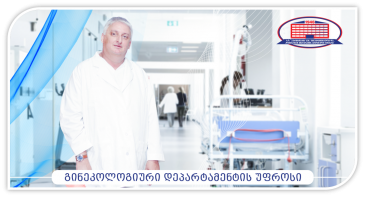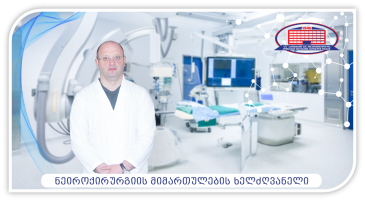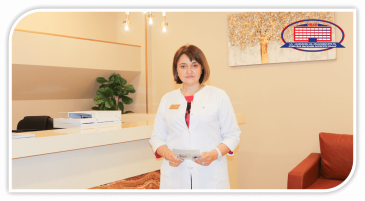Nana Sadunashvili, a nephrologist at the National Center of Surgery, is our respondent.
-What is your educational background, professional experience, and when did you join the National Center of Surgery?
-I earned a degree in Internal Medicine, Endocrinology, and Nephrology from Tbilisi State Medical University. In 2002, I worked at the Academician V.I. Shumakov Federal Research Center of Transplantology and Artificial Organs in Moscow in the Department of Kidney and Liver Transplantation. In 1997, I began working at the National Center of Surgery.
-When and why did you decide on your profession, and more precisely, the field in which you work?
-I've always wanted to be a doctor because I thought fighting for someone else's life was the ultimate act of heroism. I couldn't picture myself in another world. During my undergraduate studies, I was drawn to nephrology in particular. I was undertaking an internship at Iashvili Paediatric Tertiary Referral Hospital’s Department of Nephrology and Hemodialysis. There were only a few dialysis machines at the clinic at the time, so the medical staff had to deal with the most difficult cases. I, too, got quite interested in this topic and chose to pursue a career in nephrology.
-What does being a doctor mean to you?
-Being a doctor is a constant battle for human health. It's a terrific feeling when you beat the disease and get to see the surviving patient. I am frequently reminded of my first patient, who was discharged from one of the clinics due to severe critical pathology after all hope of survival had been lost. The patient came into contact with our clinic by chance, and as a result of the selfless work of our department, he not only recovered, but he also received a kidney transplant and was able to resume his normal way of life.
-What do you regard to be the most difficult aspect of your job?
-The most difficult issue in medicine is to constantly seek new discoveries, introduce new technologies, and improve patients' quality of life. I am proud to have been a driving force in the establishment and growth of the Department of Hemodialysis, Nephrology, and Transplantation. I'm grateful I still have to work with a team that prioritizes patient health and well-being.
-What is the biggest desire and goal you want to achieve in your career?
-I want to be able to do my favorite activity for as long as possible, to help more people and contribute to their lives being saved.
-What advice would you provide to those who are now considering a career?
-I would advise future doctors to be goal-oriented, industrious, and to prioritize professional development. To be an excellent people who work as a doctor. This career necessitates a great deal of hard effort and commitment.
-What do you think about the latest challenge of medicine - COVID 19?
-COVID 19 is the front line for doctors. In reality, our doctors have been working relentlessly and consistently over the last two years to save the lives of our residents. Human resources outnumber their bravery. This is a battle that must be won!
-How do you envisage the field in which you work evolving after ten years?
-I've been in this industry for 24 years. The earliest stages were restricted to a single device. Since then, the scope and, as a result, the possibilities for treatment have grown. During this period, the technological foundation has been steadily improving, and our department has lately been outfitted with fully new, top-of-the-line dialysis equipment, thanks to a decision made by the administration. I am confident that in ten years, this field will have advanced significantly and patients' lives will be extended.









